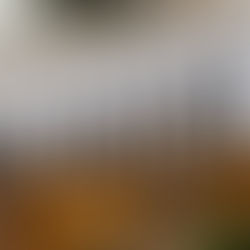
W. Grey Champion

From the Moleskine
My Moleskine accompanies me everywhere, for the purpose of catching those elusive thoughts that bombard one’s consciousness and may or may not be worthy of elaboration. I have shared these musings on my blog, From the Moleskine, each week for many years. Originally a Google blog, I moved it to this website when my third book was released. In The Weekly will be recent reflections I seek to record and to share with readers. Described here are other headings, also updated weekly.
Dokusan: In Japan, dokusan is a private meeting of a Zen student with his master. For background, readers must see my book, Conjuring Archangel: Chronicle of a Journey on the Path, because the conjuring continues.
In the Courtyard: As my collaborator on the blog, my friend Anna reports under this heading from her frequent forays to the village. We often meet in the courtyard for croissants and hazelnut coffee from the French bakery.
The Carriage Lamp: Evocative of those bygone, romantic days of horses and carriages, Anna and I, Sherlockians both, will on occasion include original poems, either hers or mine. The most recent will be at the top.
Click on the titles below to read the most recent weekly posts. If you wish to be alerted to weekly themes, join the Friends of Grey by leaving your email address.

The Weekly
A slippery slope
A column in The Post this week dealing with the legalization of medically assisted dying in the UK was written by Shadi Hamid, a relatively new contributor, a prominent scholar and author of Egyptian descent, whom I find a welcome voice of moderation. Britain is a late comer to this policy, now common in the Western democracies with the USA being a holdout apart from a few states. Hamid describes the experience of Scandinavian countries where assisted suicide was first introduced early in this century, going on to offer cautionary evidence of the “slippery slope” of which opponents have warned. The practice began as a merciful way for the terminally ill to escape a slow painful death. Gradually other conditions became qualifying: mental illness, dementia, chronic disabling afflictions, even the nearly universal sentiment in old age that one has lived too long - a slippery slope indeed.
The conflict with religion is clear, but in the circumstances we witness today there is a quandary for society more sinister. Opponents of the right to die have long contended that compassionate care of the dying would eliminate the need by assuaging the suffering. Now consider the cost of such care, then the rise of wealthy oligarchs intent on selfish ends, and you see what is coming. The obscenely wealthy, refusing to tax themselves, have a convenient palliation for the poor: The state cannot provide affordable housing, but it will help you kill yourself. Surely, anyone would rather be dead than homeless! Peering into our crystal ball still farther are darker shades of sinister. Indeed we do not have far to look - this future is already upon us. Our indifference to greenhouse gases, to the warming climate, to planetary destruction is bringing apocalypse: drought, flood, fire, famine, and the sequelae war and death, wealth notwithstanding.
Suicide has never required assistance. Socrates used the highly poisonous herb hemlock, referenced by the Hemlock Society, now long gone. The eminently rational ancient Greeks gave us the word “euthanasia.” Ideally, however, we should look for the path suggested by the ancient master “on which there is no coming and going” before it is too late!





